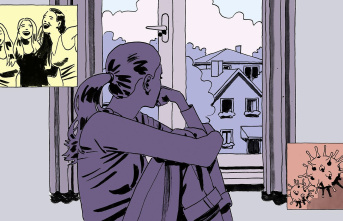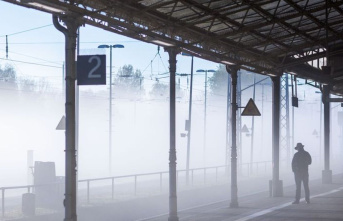The memorial hour for the queer Nazi victims is also a "personal concern" for her, said Bas. A sign against discrimination should be set - up to the present.
Central Council President Schuster told AFP: "We must be clear: the main group of victims of National Socialism were the Jews, but they were not the only group." Perhaps the chosen focus of the commemoration "makes it clearer to some people that it wasn't just the Jews that were affected," added Schuster. "It is becoming clear that such developments as in the days of National Socialism can in principle affect almost all sections of the population."
The director of the Yad Vashem Holocaust memorial in Jerusalem, Dani Dayan, was also positive. He had "no concerns" about the focus of the commemoration in the Bundestag, he told AFP. "We respect and honor all victims of the Shoah." At the same time, Dayan also emphasized the uniqueness of Jewish suffering during the Nazi era.
In the AFP interview, Bas pointed out that the persecution of sexual minorities did not end with the end of National Socialism. Above all, gay men, but also lesbian women and transsexuals had to reckon with criminal convictions and social ostracism. According to Bas, this injustice should also be addressed during the commemoration.
"During the commemoration, we draw a parallel to the so-called 'gay paragraph', which was only repealed very late," said the President of the Bundestag. "By the time compensation payments were made, many were no longer alive."
Bas will open the memorial on Friday with a speech. The memorial speech will be given by Holocaust survivor Rozette Kats. Another speaker is Klaus Schirdewahn, who was sentenced in 1964 for having sexual relations with another man. The actor Jannik Schümann and the actress Maren Kroymann will present texts about two victims whose life stories are exemplary for the persecution of sexual minorities during National Socialism.
January 27 has been celebrated in Germany since 1996 as a day of remembrance for the victims of National Socialism. The date refers to the liberation of the survivors of the Auschwitz-Birkenau death camp by Red Army soldiers in 1945.
In the AFP interview, Schuster emphasized that institutionalized commemoration, like that in the Bundestag on Friday, was "particularly important again now in view of the growing anti-Semitism in society." He thinks the ritualized commemoration is "not bad at all," said Schuster: "This concentrated approach to this topic, especially on fixed dates, is very important. This is then used, for example, to address the topic in schools, and that is the most important thing to me."











